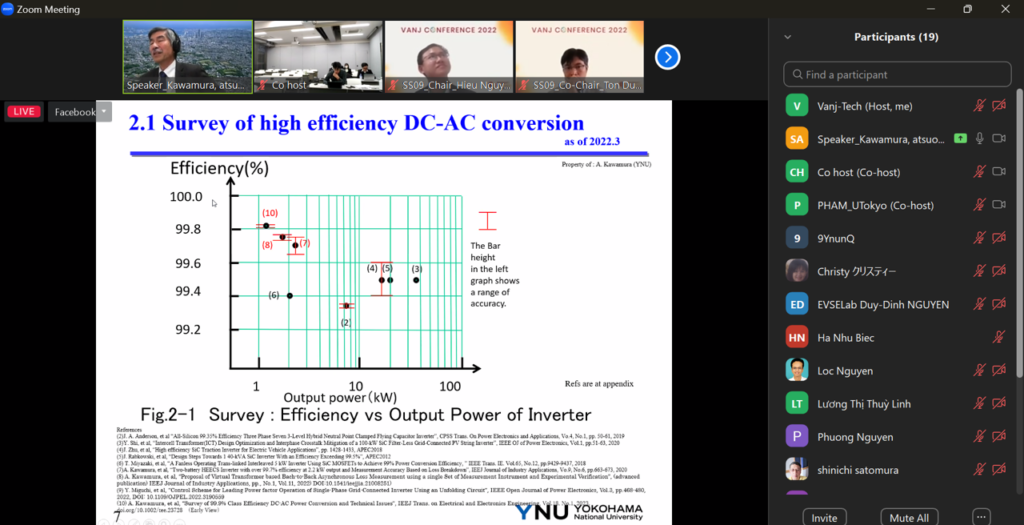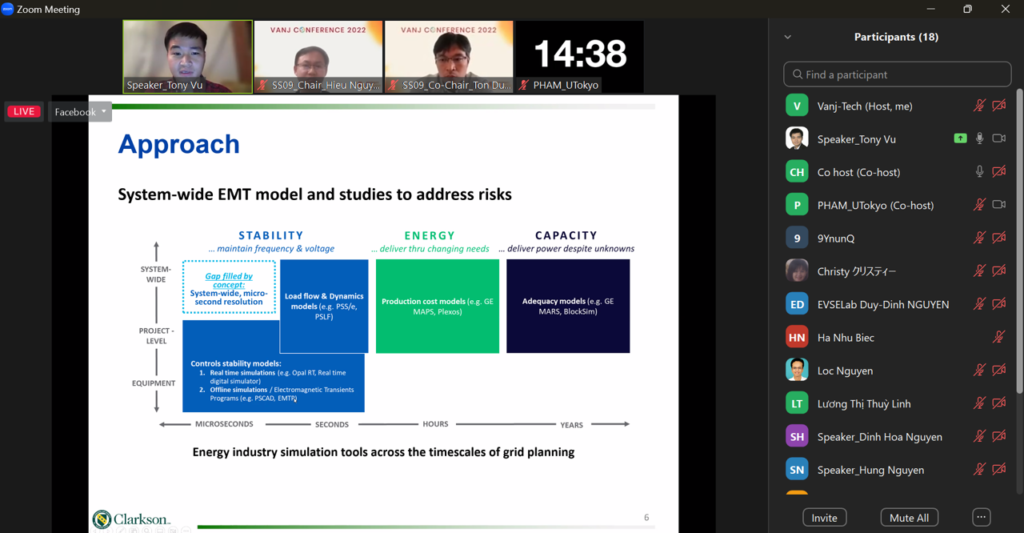
Towards 3D energy landscape: digitalization, decarbonization, decentralization
Session introduction: https://conf.vanj.jp/2022/timetable/event/energy/
On the afternoon of November 26, 2022, a special “Towards 3D energy landscape: digitalization, decarbonization, decentralization” took place lively with interesting presentations from 05 invited speakers.
Opening the session, Assoc. Prof. Nguyen Hong Phuong from The Eidhoven University of Technology gave an overview of 3D energy landscape with various benefit it can give via many research topic his research group is conducting in the his laboratory. Via his talk, digitalization was emphasized as the key perspective to speed up the transformation of energy system. In addition, a question on “democracy” perspective was raised and received much attention from audience as well as other speakers.
Next, Assist. Prof. Vu Van Tuyen from Clarson University expressed the challenges in investigating the impact of offshore wind farm on power system stability and reliability via lessons learnt from interconnection system from New York Offshore wind project. Obviously, system-wide level electromagnetic transient model is requested while current reliability, protection standard must be revised.
Being recognized as the core component of any RES-based energy and power systems, improving efficiency of inverter will increase the efficiency of whole energy and power system accordingly. Starting from engineering science perspective, Prof. Atsuo Kawamura from Yokohama National University suggest a trend on very high-efficiency inverter and its application. Specifically, he proposed a simple method to accurately measure the efficiency of two battery HEECS inverter and suggested the step-by-step design method to increase the efficiency of this inverter type.
Diversity of renewable energy sources from solar photovoltaic panels, energy storage system or wind turbine technologies with their flexible and decentralized operation provide various grid services and energy markets. Amongst those, distributed peer-to-peer energy trading was emphasized as an advanced model, which can support to enhance security of energy transactions, structural transform the energy system from top-down to bottom-up, increase profit and privacy of prosumer, etc., via the presentation of Assoc. Prof. Nguyen Dinh Hoa, Kyushu University.
Assist. Prof. Nguyen Dinh Hung, from Nanyang Technological Univesity gave a presentation on economical operation of Li-ion energy storage system (ESS) with battery life-time consideration. A Monte Carlo-based data-driven approach is used to health monitor the operation of the ESS and a proper operational strategy for ESS such as battery voltage, current, state of charge, etc. is suggested for the ESS operator so that the system can operate economically with extended life-time.
The session was ended by the panel discussion amongst invited speakers and about 25 online and onsite attendees. Via this discussion, the importance of realizing a new energy landscape was again emphasized along with the necessity of revised research models, policies, technical standards, etc.
 |
 |
 |
 |


You must be logged in to post a comment.